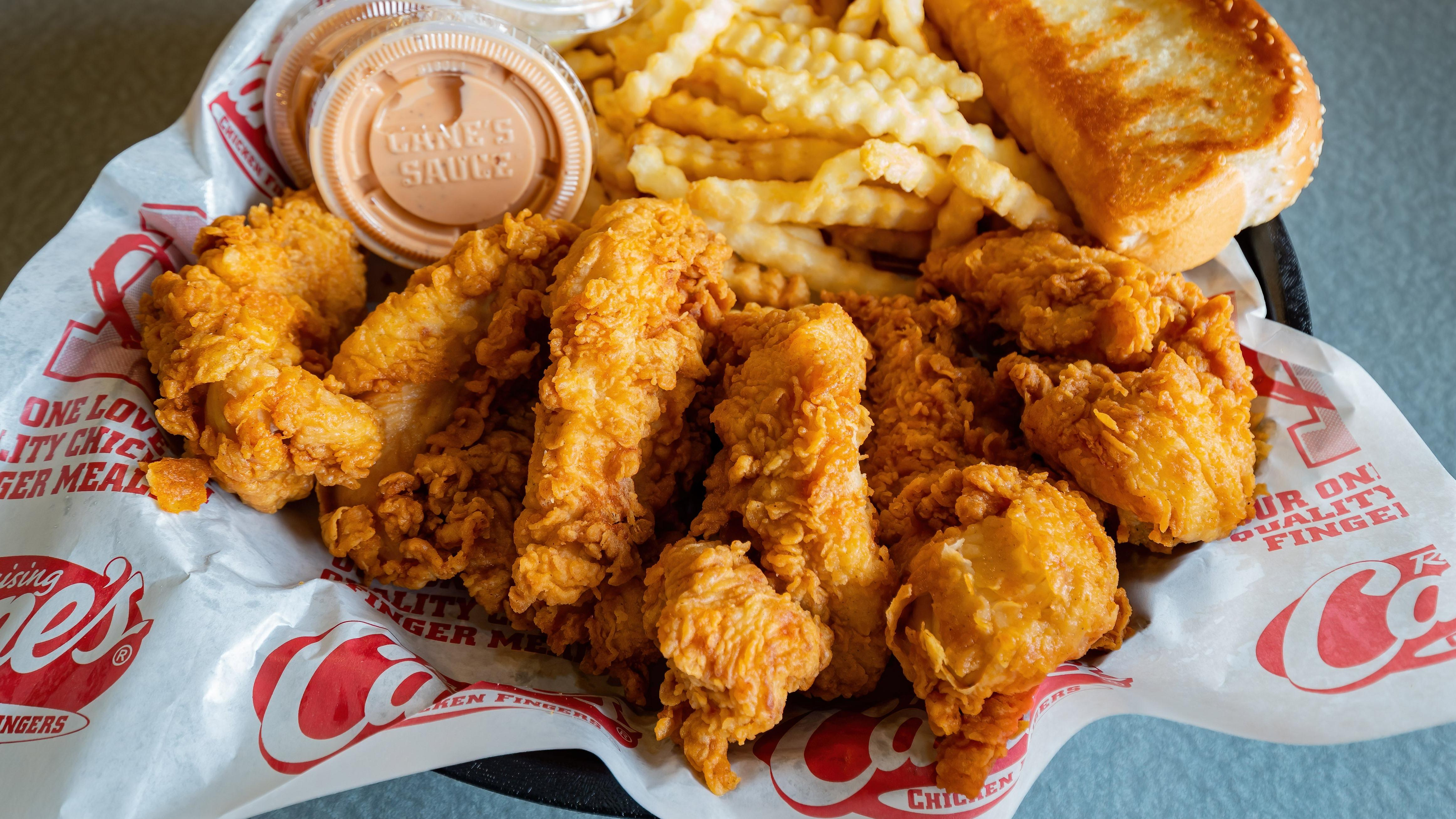Raising Cane's Is Raising Hell
The chicken chain filed a lawsuit against an Indiana mall where it’s set to open a new location.
"I'm going to say it right now: These are the best fast food chicken fingers out there." That's what staff writer Dennis Lee wrote when Raising Cane's first came to Chicago several years ago, and it continues to be true. The fast food chain is likely so successful because it keeps its menu tight and focused, serving little else beyond the chicken fingers themselves—even its chicken sandwich is just three chicken fingers on a bun. So if it were, say, illegal to sell chicken fingers, the business would be in trouble. And that's the very reason Raising Cane's is suing a mall in Indiana.
Raising Cane’s vs. the Crossings of Hobart
This has been a major year of growth for Raising Cane's. Between 2020 and 2021 the chain opened more than 120 locations, and despite last year's staff shortages, it's on track to open 100 new stores this year, Nation's Restaurant News reports. One such location was slated to open in the Crossings of Hobart, a shopping center in Hobart, Indiana. And according to The Washington Post, this wasn't going to be your average Raising Cane's—this was a 15-year lease with plans to open a double drive-thru and patio seating. It wasn't until after the ink on the deal was dry that Raising Cane's learned that there was a ban on selling chicken at that location.
It turns out that the former owners of the property had signed a noncompete deal with a nearby McDonald's location, guaranteeing that McDonald's the exclusive right to sell deboned chicken to the shopping center, the Times of Northwest Indiana reports. According to a lawsuit filed by Raising Cane's, this was not discovered until eight months and $1 million into the construction process, when Crossings of Hobart asked McDonald's for a waiver to allow a Chipotle to open there and McDonald's refused, noting at that time that the Raising Cane's was also in violation of the provision.
"This case is about the defendants' scheme to induce Raising Cane's to enter a 15-year lease with rent payments to Crossings totaling millions of dollars, in exchange for a Raising Cane's restaurant that the defendants knew would never actually exist," Raising Cane's claimed in the lawsuit as reported in the Times of Northwest Indiana. "Despite knowing that the entire business model of Raising Cane's Chicken Fingers is premised on the sale of chicken fingers, the defendants did not disclose this issue before the lease was executed."
The defense is arguing that a line in the lease citing "potential restrictions" should have been more closely researched and taken to heart by Raising Cane's, The Washington Post reports.
The case is still active, so whether or not northwest Indiana will soon have access to the nation's best fast food chicken fingers is unclear. But let this be a lesson to us all: Always read the fine print.
